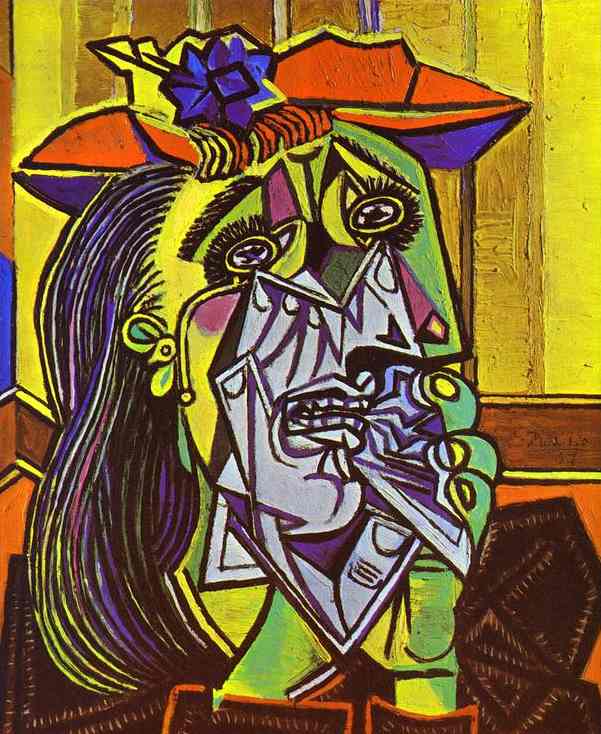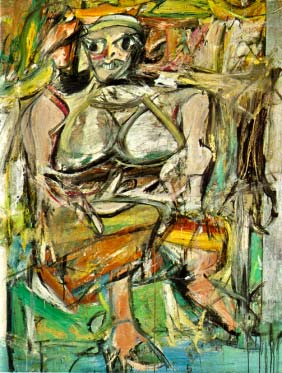Oh, re moral character and art, agree with jl and gs on that, with the possible qualm if the art was all about propaganda... (and then somehow not art?) but then I've listened and nodded re Riefenstahl and Wagner. I've only seen some of Riefenstahl and don't quite get why she was good, so defer. On Wagner, I'm not musically savvy but have liked pieces by him.
But back on Riefenstahl, I gather she had some import on history of documentary photography. I seem to remember she was an recalcitrant apologist, or is that unrecalcitrant - didn't change her mind.
I'll spend my time with the Capa group myself.
What an interesting dialogue this is! I completely agree with Vivien and with all those who have said that an artist's moral caliber or personality have nothing at all to do with that person's artistic achievement. If one took a close look at the lives of some of the painters/writers/poets/composers of the past few hundred years, one would quickly wish to wash their hands and then take a sip of something bracing to get the bad taste out of their mouths. And that would have nothing to do with the quality of the artist's work.
Picasso was a mysogynistic, unfeeling, ego-driven genius of the first water. I don't like all of his stuff, no, and some of it he never expected to be liked by people other than the fools who paid dearly for it. My father used to say that, in addition to being a fine painter, Picasso was -- in Dad's words -- "an artist of life." He meant that Picasso knew how to turn a piece of paper or canvas or any other medium into a million dollars with a couple of strokes of brush or pencil or charcoal. That is a gift in itself.
Caravaggio was profoundly unsavory--a murderer among other things--but he was a genius with light.
Was he?
I am all confused at this point. I've read Cellini's autobio (trying to remember if Caravaggio was in there) and Vasari's Lives of the Painters, and Peter Robb's Caravaggio and ended up reading Caravaggio as a maybe, maybe not re the murder. I admit I surface read but I am not all so ready to think thuggy.
Picasso Genius or Charlatan
Carravaggio...I was thinking of him, miklos, when I wrote my piece on moral degenerates producing art on the highest spiritual plane. Without Carravaggio...and light...we would never have had Rembrandt.
And ossobuco, it was YOU, who recommended A Man Called M, a bio of
Carravaggio...some years back on Abuzz. In fact, your recommendation was so inspiring, I actually bought and read the book.
For a Picasso, not so well known, but perhaps softer and more light filled than most of his other works, go to
http://www.moma.org Then click on Picasso : Night Fishing at
Antibes Aug 1939 oils on canvas 6'9 x 11'4
in their search box.
It is a particular favorite of mine.
Merry Andrew wrote:What an interesting dialogue this is! I completely agree with Vivien and with all those who have said that an artist's moral caliber or personality have nothing at all to do with that person's artistic achievement. If one took a close look at the lives of some of the painters/writers/poets/composers of the past few hundred years, one would quickly wish to wash their hands and then take a sip of something bracing to get the bad taste out of their mouths. And that would have nothing to do with the quality of the artist's work.
I agree. But, in the case of the Weeping Woman the conflict between Picasso, and his wife produced the inspiration that created the painting.
Thanks for the title, GS, yes, that was the book. I'd forgotten the title.
I have no academic qualifications to negate that book, and it made sense to me and still does.
Who am I kidding, I have no academic qualifications at all, I just am interested and read.
I dunno. Academics have some wildly stressed number of years, and some of the rest of us read for a lifetime. Life time.
Whatever, let us keep talking.

Here is the link in case the picture disappears.
http://www.inminds.co.uk/weeping-woman-picasso-1937.html
I also believe that sometimes the persons moral character is reflected in his work.
I also see in Picasso's Weeping Woman a conflict. While Picasso felt the need to distort women in some of his paintings, he also praised them with color.
While William De Kooning from what I understand had issues with women, and felt the need to distort with form, line, and color. His different versions of Woman are pretty much the same.

Woman 1950-52
Here is the link in case this one disappears too.
http://paintings.name/abstract-expressionism.php
Miklos7 wrote:Caravaggio was profoundly unsavory--a murderer among other things--but he was a genius with light.
Taking into account the duality of man that does not surprise me.
I just want to say that, I'm not an expert like many here, but I do know what I like, don't like, and why. I know a little about art, and hope to learn more. If you all will be patient with me and allow me to do so.
Thanks
Of course, angelique.
I in the meantime posted stuff at length that I then somehow sent to the great art beyond.
Let me say then, that my lost post was the best ever, the most explicating, the wisest one to be reverered for years to come.
Ok, never mind.
LOL KK osso. I hope the pictures of the paintings I posted don't disappear again too.
Osso, I don't know if I have posted enough for you to really give me an interpretation as to how I view art. I think it would be helpful to me to know how others see it.
Thankyou, Angelique for the wonderful deKooning.
Could we have de Kooning without Picasso...I doubt it.
Your welcome. I really don't know. I wonder what picasso would have said about kooning's woman paintings.
Out of personal curiosity, goodstein-shapiro, who were you on Abuzz?
G-S, "Night Fishing at Antibes" is particularly beautiful: rich atmosphere, lovely color, subtle but powerful geometry.
Is the large pale disc with a spiral in it--right above the principal fisherman's head--the moon? If so, this is quite the line of light: moon to fisherman's face to his lamp, to the circle of light in the water--and multiple reflections back-and-forth.
Yesterday, I heard a short feature on the radio about one of the Cape Verde Islands. Fishing from the town pier is, as in Picasso's painting, an activity that draws spectators. If the islanders were not so deeply impoverished, this scene would be very pleasingly nostalgic of a time of closer communities. For similar reasons, I love seeing the bicyclists watching the fishing in Picasso's painting.
Where I live in rural Maine, come alewife season, there are still occasional night parties, during which everyone drinks a lot of beer, wades into the icy water and nets the fish by flashlight and, sometimes, car headlights. Older folks have told me that I should have seen this done by kerosene lantern--that it was gorgeous to look at on a dark night. I'll bet!
AE, Yes! Picasso and deKooning had somewhat similar relationships with women, though [you might enjoy the new Swann biography DE KOONING] Picasso seems to have committed himself more deeply, more often than deKooning did. Both painters could be mean, exploitative, and manipulative with women, BUT I'm not at all sure that the distortion of form that you see in Picasso's WEEPING WOMAN
or deKooning's WOMAN came from a personal need to distort the images of women. I believe that the "distortion" was more the way the painters "saw" their world than it was a direct commentary on women.
Both painters, although they could be dreadful to women, felt that women were suffering the woes of 20th-century life in general. These men were sexist in a very old-fashioned way; they saw the existential pain of women as coming from modern life's tearing at their traditional identity.
I am being embarrassingly simplistic here. Perhaps, someone else can explore this comparison much more fully. I find these correspondences between the two great painters very provocative. Thank you, AE, for raising this topic--and for the excellent images you posted.
Your welcome. I think the distortion came from the need to express their inner feelings at that moment, and in Picassos case to paint a dramatic situation in a cubist form.
My Abuzz names: Florence Walton, Pensaforte...a rose by any other name would.....etc.....etc....as sweet.
Picasso was expert in the field of art history. I am sure he would have looked at deKooning's work with great interest and said, "a chip off the old man's (me Picasso's) block". He would have recognized his own image in the cubist approach to form which de Kooning inherited from Picasso, as well as in deKooning's use of bold expressionist
distortions of form.
I do agree with you Miklos that Picasso's style had MORE to do with the tenor of the 20th century than with his attitude towards women. That is WHY Picasso is such a significant artist. AND THE SALIENT POINT, despite other causative elements.
Despite the hostile attitudes towards women displayed by these artists, it should also be stated that BOTH Picasso and de Kooning were very dependent on women...which might also explain the distortions...adolescent revolutions. Also, these two men were NOT French painters, but of
Spanish and Dutch stock. which cultures tended towards Expressionism, i.e. Bosch, Goya, etc.in their individual art histories.
I really don't see the cubist in De Kooning.